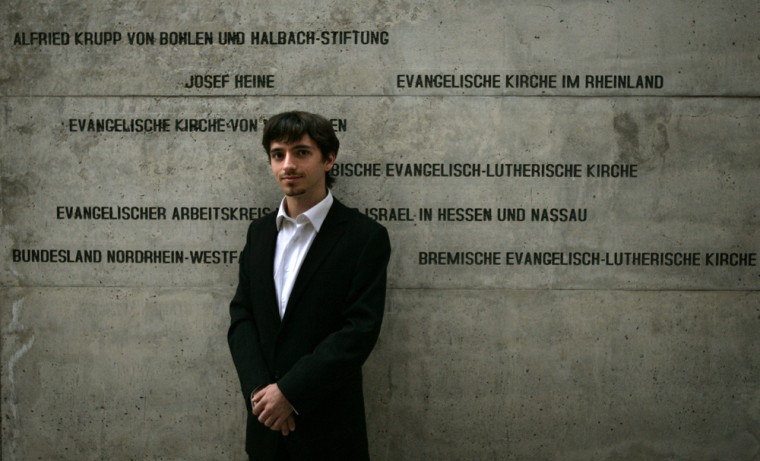Felix Muller, 20, was born long after the Holocaust ended, but that doesn’t diminish his sense of obligation to the victims.
“As a German, it’s part of my history whether I want it or not,” Muller said.
Last summer, he and two dozen other German volunteers arrived in Israel for a year of service through a group called Ot Hakapara, Hebrew for “Sign of Atonement,” working at libraries, nursing homes and community centers around the country.
On Sunday night, they will join Israelis in observing the annual Holocaust remembrance day, attending the official ceremony at Yad Vashem — Israel’s Holocaust memorial and museum — and speaking with Jewish students about the Nazis’ crimes.
Muller says his time in Israel has brought him a number of powerful experiences.
At the nursing home where he volunteers, he said, a 90-year-old woman ignored him for weeks, until one day she struck up a conversation with him — in German.
“She said she hadn’t spoken German to anybody in 60 years. She just stopped speaking it after the Shoah,” Muller said, using the Hebrew word for the Holocaust.
‘I feel a special responsibility’
Ot Hakapara was founded in 1958 by German Protestants who believed their church had not done enough to stop the Holocaust, Katharina Vonmuster, the group’s executive director, told The Associated Press. Each year, the group sends around 180 volunteers to help the needy in Israel and other countries affected by World War II, she said.
“As an East German I feel a special responsibility, because East Germany did almost nothing during its 40 years of existence” to recognize the Holocaust, Vonmuster said. While democratic West Germany accepted responsibility and paid reparations, the Communist East refused to shoulder any blame.
Rebecca Goermann, 19, is volunteering at a children’s library in the northern city of Haifa. To her surprise, she said, she has faced no hostility in Israel due to her German background.
Having spoken extensively with Lebanese students at her high school in Germany, Goermann said, she came to Israel to learn more about the Jewish perspective on the conflict with the Palestinians.
While her views have remained largely intact, “now I know much more about it from people on both sides,” she said, adding she “fell in love” with Israel and plans to return.
Vatican envoy angry over display
The remembrance day for the 6 million Jews killed by the Nazis lasts from sundown Sunday to sundown Monday. Bars and clubs close and Holocaust programming fills the airwaves. Air-raid sirens sound nationwide, bringing traffic to a halt for two minutes of silence, even on busy highways.
Controversy marks this year’s observances.
On Thursday, the Vatican’s ambassador to Israel, Monsignor Antonio Franco, said he would not join foreign diplomats at the Yad Vashem ceremony because he objects to a display at the institute’s museum that criticizes the wartime pope, Pius XII, for remaining silent during the Nazi genocide.
The Vatican says Pius XII engaged in discreet diplomacy to save thousands of Jews.
Some survivors’ groups fault the Israeli government for providing insufficient welfare to the nearly 250,000 Holocaust survivors living here. The Foundation for the Benefit of Holocaust Victims in Israel, a prominent advocacy group, estimates as many as 30 percent of Israeli survivors have economic difficulties.
Dubby Arbel, the foundation’s director, says many problems rooted in the Holocaust have surfaced only in old age — traumas inflicted by the Nazis begin to surface, and malnutrition suffered in concentration camps and ghettoes leaves the elderly more vulnerable to disease. Many survivors age in isolation because they lost their families in the Holocaust, he said.
Thirty survivors die every day, Arbel said, and “if we don’t help them now, within five to seven years we won’t have many people left to help.”
